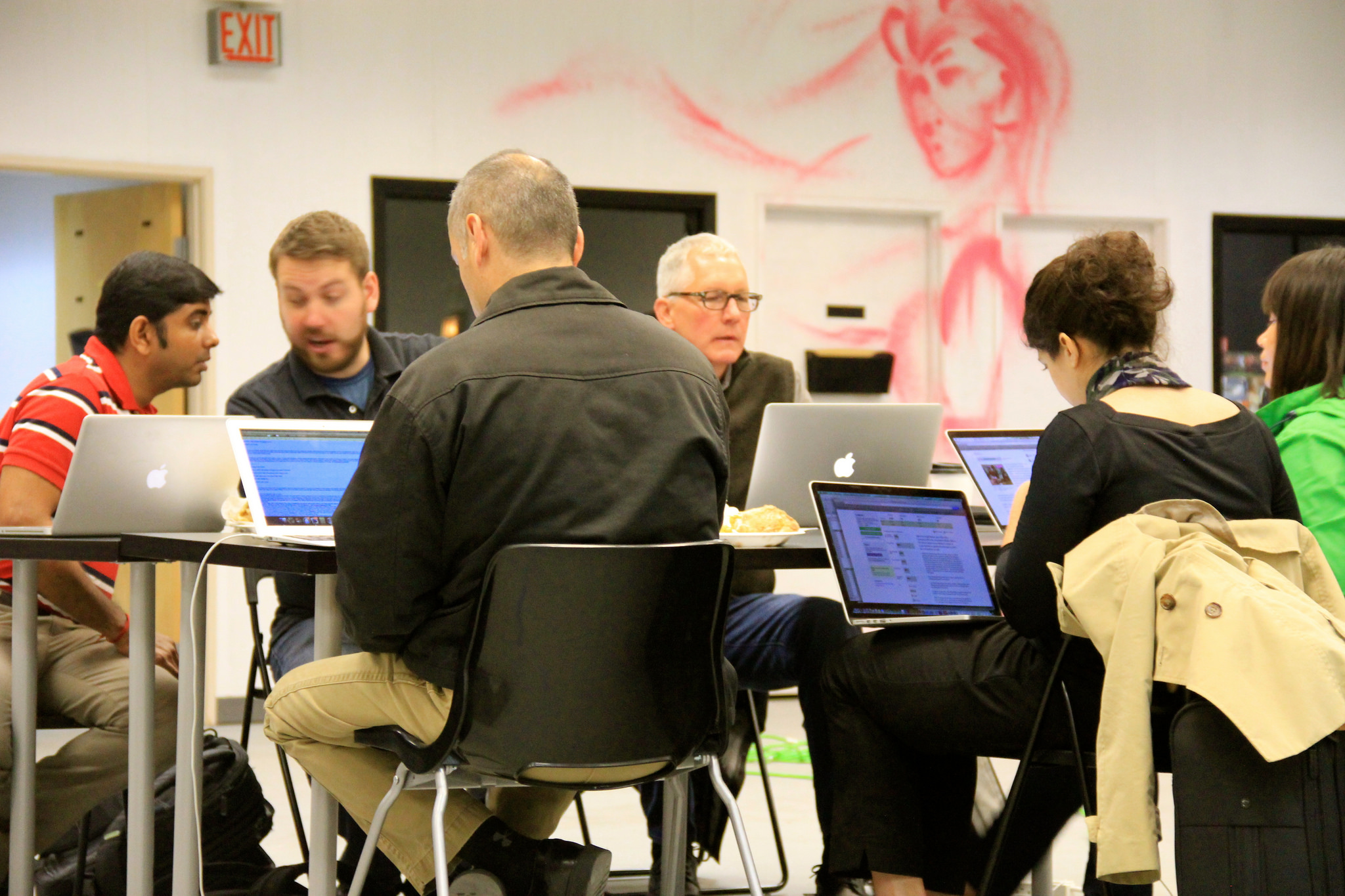"Civic Tech" is One Antidote to Trumpism, and the Omidyar Network is Doubling Down Here
/If you think about it, the age of Trump is tailor made for the Omidyar Network, and on several counts. First, this has never been an outfit that's placed lots of chips on securing big public policy wins in Washington, D.C.—or really even been fixated on policy at all. Instead, Omidyar has placed much of its faith in market solutions, as well as social entrepreneurs working in a decentralized fashion to reinvent the nonprofit sector and revitalize civic life. The fact that the capital of the free world is now in the hands of backward-looking reactionaries aiming to gut government makes Omidyar's vision of change all the more appealing.
At the same time, though, Omidyar is as attuned as any funder out there to the dangers of a new authoritarianism, and it's made big investments over recent years to ensure a free flow of information and shore up democratic institutions. With First Look Media, a personal investment by Pierre Omidyar, he empowered a set of journalists with the skills to challenge the surveillance state. Omidyar money also bankrolled the Democracy Fund, which makes grants to groups working for electoral and civic reforms. Along with the George Soros and select other funders, look for Pierre and Pam Omidyar to be on the forefront of resistance to Trumpism.
The Omidyar Network is an especially good friend to the burgeoning world of "civic tech," a space that fuses technology innovation and the push for stronger democracy. And in recent weeks, we've seen signs that Omidyar is standing fast behind such efforts.
A few days ago, the Omidyar Network announced that it was upping its investment in Civic Hall and Civic Hall Labs in New York City. Civic Hall, which was started just two years ago by Andrew Rasiej and Micah Sifry, describes itself as "a collaboration center for the world’s civic innovators" and a "community space where social entrepreneurs, change-makers, government employees, hackers, academics, journalists, and artists can share knowledge, build tools, and solve problems together."
That sure sounds like Omidyar's cup of tea, right? So it's no surprise that the funder helped get Civic Hall going in 2014 with a $500,000 grant. Now, it's come in at a much higher level, with $4 million in new funding, half of which will go to Civic Hall's new R&D arm, Civic Hall Labs. This venture will work collaboratively with a range of partners to develop and pilot digital tools to advance the common good. (You can check out its programs here.)
The Omidyar Network also has a keen interest in helping localities innovate and advance change—work that's all the more relevant in the age of Trump. This funder sees civic tech tools as the connective tissue for futuristic smart cities, where citizens are more empowered to make the nuts and bolts of local governments and economies work better. (Bloomberg Philanthropies is another funder that operates in this space, through its Innovation Teams program, which has directed tens of millions toward making city governments more efficient, as we've reported.)
Recently, Omidyar made a $500,000 investment in Citymart, which works to channel ideas from local innovators to improve city procurement processes. In essence, Citymart’s platform is a tool for collaboration, opening the door to a range of new vendors with new approaches. If that doesn't sound so exciting to you, it does to the folks at the Omidyar Network. "Citymart is more than a platform—it's fundamentally changing the way city governments solve problems and improve the quality of life for all citizens," said Stacy Donohue, an investment partner at the network. "What we find most promising about this company is the way it is helping cities rethink the way they address the procurement process for city services—which will enable better services to more people at lower cost."
This kind of thing isn’t new for Pierre and Pam Omidyar’s boundary-pushing “philanthropic investment firm.” Impact investing is popular now, but the Ebay founder was one of the first big funders to mix private sector elements into his giving. Omidyar’s funding approach is multifaceted, pumping money into market-based models (for-profit and not-for-profit alike) based on what works. Many top philanthropists, most notably Mark Zuckerberg and Priscilla Chan, are now following his lead.
Much of Omidyar’s impact investing happens abroad, which is one more reason this funder isn't hostage to the whims of the American electorate. It's playing a global game. In Brazil, for example, where support from international development agencies is trailing off, Omidyar channeled $5 million to FIRST, an impact investing fund. In India, the Omidyar Network sees a key testing ground for its brand of impact investing, and plans to invest $350 million there. It's also operating widely in Africa.
Related:
- Will Omidyarism Conquer Philanthropy?
- Can't Get a Grip on Omidyar Philanthropy? You're Not Alone, So Take This Guided Tour
- India: A Top Testing Ground for Omidyarism and Impact Investing
- Omidyar Looks to Boost Brazil's Sagging Fortunes With Impact Investments
- In a Push for Financial Inclusion, the eBay Foundation and a Focus on Entrepreneurs
- Who's Empowering Wonks to Fuel Economic Growth in American Cities?









